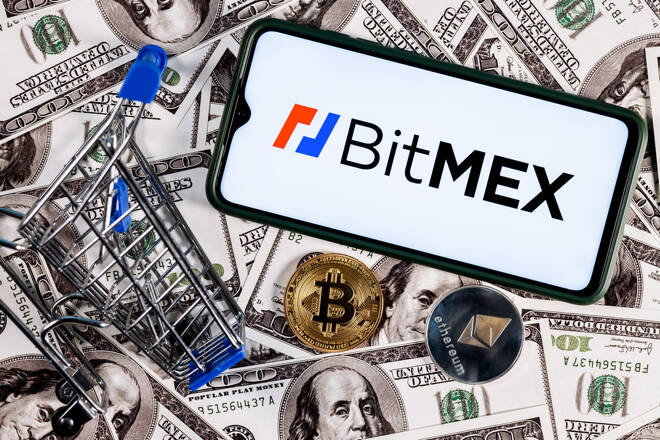Advertisement
Advertisement
BitMex Co-Founders Plead Guilty to Breaking U.S Bank Secrecy Act
By:
Last year, BitMEX paid a $100m penalty for breaching U.S laws. This week, co-founders Delo and Hayes each paid $10m after pleading guilty overnight.
Key Insights:
- BitMEX co-founders Delo and Hayes plead guilty to violating the Bank Secrecy Act
- In 2021, crypto derivatives trading platform BitMEX paid a $100m penalty for breaches of U.S laws
- Increased regulatory scrutiny will likely see more hefty fines on the horizon
Co-founders Arthur Hayes, Ben Delo, and Samuel Reed established BitMEX, a P2P crypto trading platform in 2014. The platform supports crypto derivatives trading, including futures and margin trading.
BitMEX Co-Founders Plead Guilty
Overnight, the U.S Department of Justice announced that BitMEX co-founders Delo and Hayes have pleaded guilty to violating the US Bank Secrecy Act. “Hayes and Delo each agreed to pay a $10 million criminal fine representing pecuniary gain derived from the offense.”
In 2020, co-founders Hayes, Delo, and Reed were accused of operating an unregistered trading platform. The Commodities Futures Trading Commission (CFTC) accused Hayes, Delo, and Reed of violating CFTC rules reportedly that included anti-money laundering and KYC regulations.
For evading anti-money laundering requirements, co-founders Hayes, Delo, and Reed, as well as Greg Dwyer (head of business development), were also charged with violating the Bank Secrecy Act.
BitMEX Pays $100m Penalty
In August 2021, U.S federal courts entered a consent order against 5 companies charged with operating the BitMEX crypto derivatives trading platform.
The order required the five entities to pay a $100m penalty in addition to prohibiting BitMEX from further violations of the Commodity Exchange Act (CEA) and CFTC’s regulations.
According to the order, BitMex operated as a common enterprise from at least November 2014 to October 2020. The platform reportedly offered leveraged trading of crypto derivatives to retail and institutional clients. BitMEX was aware of U.S customer access to the platform.
In the U.S, BitMEX violated rules under the CEA by enabling the trading or processing of swaps without approval as a Designated Contract Market (DCM) or a Swap Execution Facility (SEF).
Regulatory Scrutiny Keeps Exchanges in Focus
Since late last year, regulators have increased scrutiny of the crypto market. This month BlockFi paid a $100m penalty in an SEC settlement. In November 2021, the SEC alleged that BlockFi’s high-yielding accounts were unregistered securities.
While the conclusion to the BlockFi case was swift, the SEC v Ripple Lab (XRP) case has been ongoing since late 2020.
Other exchanges that have recently faced U.S regulatory scrutiny include Coinbase (COIN) and Binance (BNB).
About the Author
Bob Masonauthor
With over 28 years of experience in the financial industry, Bob has worked with various global rating agencies and multinational banks. Currently he is covering currencies, commodities, alternative asset classes and global equities, focusing mostly on European and Asian markets.
Advertisement
